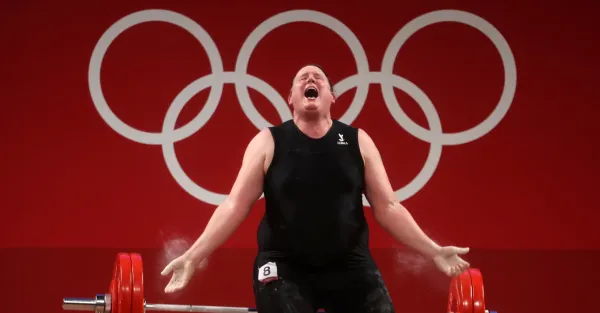Do Transgender Athletes have an Advantage?
Transgender athletes, particularly transgender women athletes are said to have an advantage in sports. We explore whether this advantage is prevalent or not and came up with some interesting insights.

Transgender athletes, particularly transgender women athletes are said to have an advantage in sports. We explore whether this advantage is prevalent or not and came up with some interesting insights.

The recent appearance of transgender athlete Laurel Hubbard in the Tokyo Olympics has sparked a debate on whether or not transgender athletes have an advantage in sports. It has been argued by many that IOC’s benchmark of 12 months after hormone therapy is not enough to take away the strength of a male body from a trans women athlete. Hence, while competing with cisgender women athletes, trans women hold an unfair advantage.
In this piece, we’ll attempt to answer the question. Do transgender athletes have an unfair advantage in sports? – with the help of scientific studies.
According to the IOC’s set criteria for transgender athletes, there is no condition for the female to male transgender athletes to compete in the men’s category. On the other hand, male to female transgender athletes, the IOC requires athletes to have a serum testosterone level not more than 10 nmol/L. This level of testosterone must be maintained for at least 12 months prior to the first competition (article).
The conditions laid down by the UCI for the women’s category is more restrictive as they require a total testosterone level of less than 5 nmol/L. Like the IOC, they too demand that the required testosterone level must have been maintained for 12 months prior to the eligibility date.
The question that arises here is whether the serum testosterone level is the only way to determine the advantage/disadvantage that different genders have in sports. Even if it is the only criteria, the cis women athletes are still at a disadvantage while competing with transwomen as the normal level of serum testosterone for cis women is 0.5-2.5 nmol/L. Hence, trans women athletes are allowed to compete with a higher serum testosterone level than cisgender women, which many view as a clear advantage.
Although the scientific research is quite limited, the existing ones assist in giving us a broader apprehension of the topic. Below I’ve cited a number of research articles along with their stance on whether trans women athletes have an advantage in sports or not.
First, it is essential to clarify that between fairness and inclusiveness, what we value more. If it is inclusiveness, the whole debate is pointless. However, if we’re looking to achieve fairness along with inclusiveness, this debate is of great significance.
In the case of a female-to-male transitioned trans athlete, there is no advantage at all. But when it comes to the male to female transitioned athletes, all of the above studies point out in the same commentary that transwomen may hold an advantage over cisgender women for some years following their therapy.
It’s understood that even after three years of hormone therapy, strength, lean body mass, and muscle area of transwomen remained greater than cis women, hence they preserve an advantage.